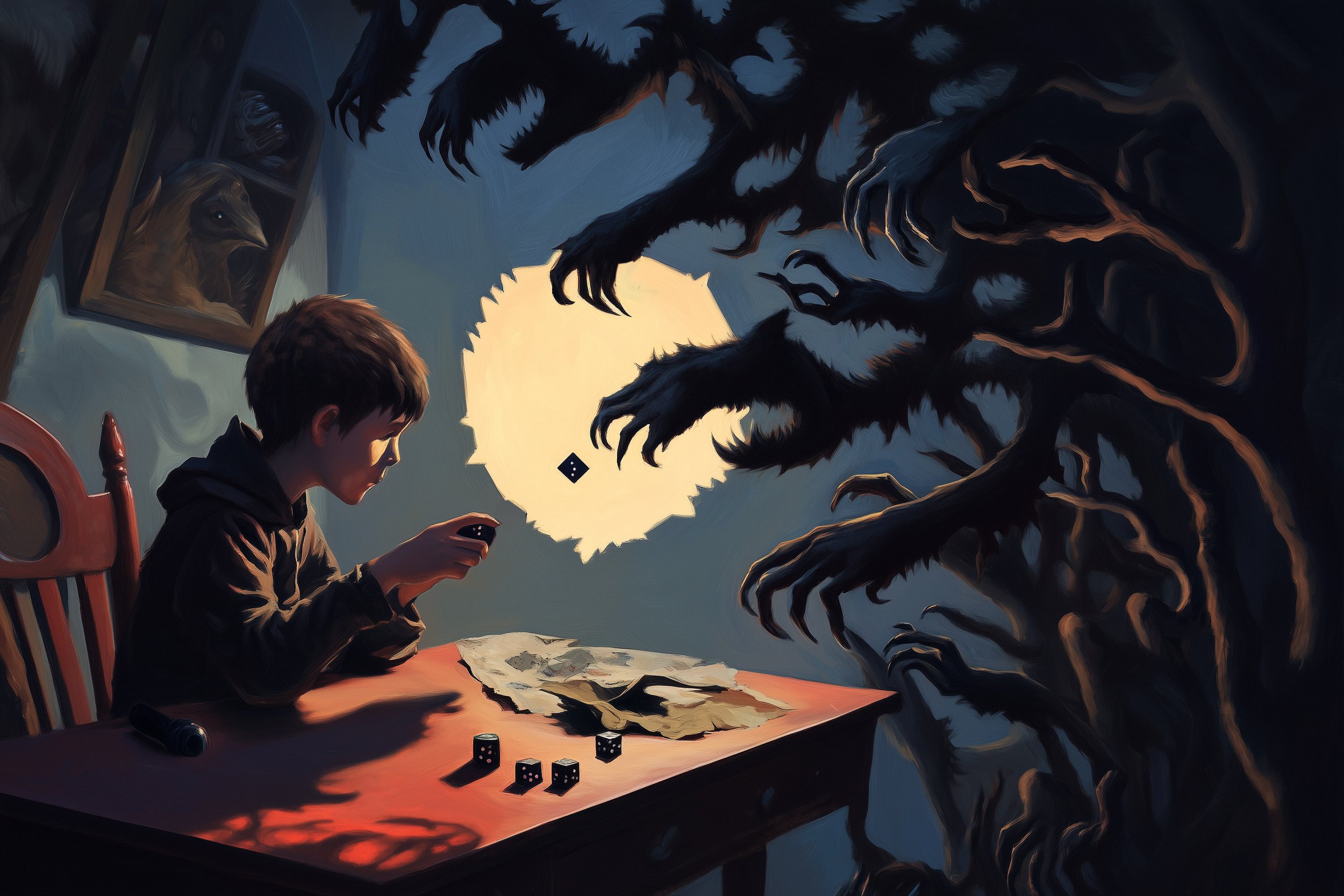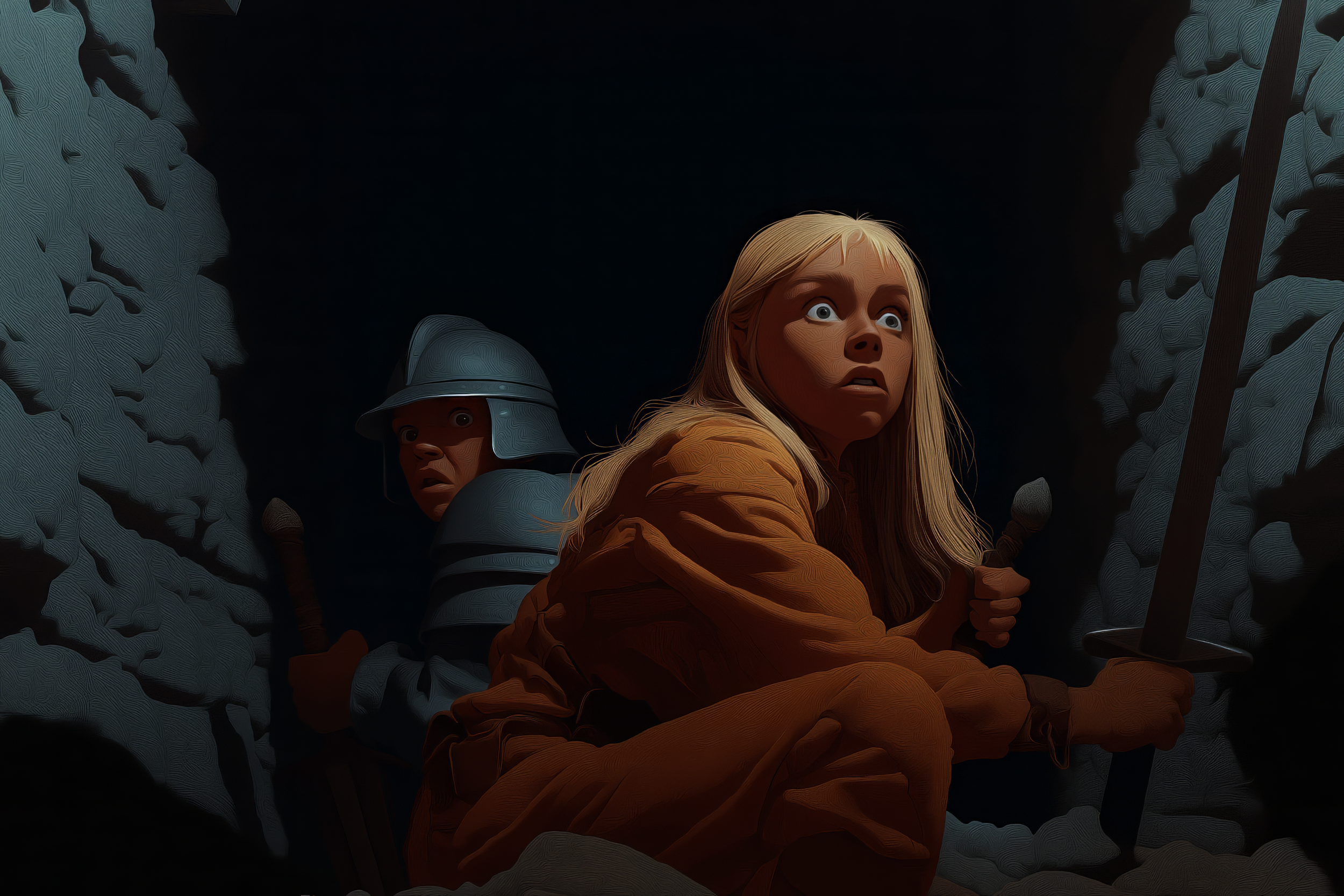
Articles

Stranger Things as Actual Play: Table Logic, Not Plot Logic
Stranger Things is goofy by design. Read it like a modern D&D actual-play: party logic, playable plans, tonal swings, and moral improv under pressure.

Rules in Practice, part 4
In Part 4 of our history of roleplaying games, we explore the rise of The Forge, a dedicated online community that wielded outsized influence on the medium, as well as other major events in TTRPGs in the 2000s. At the heart of this movement was the at times controversial maxim: “System Does Matter.”

Bad Decisions by Design
Alien: Earth clarifies the franchise’s core threat: institutions that reward throughput over prudence. This article reads the film as corporate horror—memos, metrics, and liability turning procedure into catastrophe—and translates that logic for RPG tables. Instead of forcing “dumb” moves, surface incentives so risky choices are rational now.

Nosferatu as folklore
This essay uses Robert Eggers’ Nosferatu to explore how folklore and mythology thrive on repetition and variation. Drawing on vampire traditions from Slavic demonology to 18th-century “vampire panics,” it argues that retelling—rather than invention—is the engine of myth, and that Eggers’ film treats the Dracula lineage as a living, evolving form.

Rules in Practice, part 3
Part 3 charts the rise of “Trad” culture from AD&D through World of Darkness. It shows how thick core books, pre-generated heroes, and epic modules shifted focus from dungeon logistics to coherent campaign arcs. GMs adopted a director’s mantle, spotlighting each character while discreetly fudging dice to protect narrative beats. Meanwhile, players internalized a new ethical norm: cooperate with the plot, don’t derail it.

Rules in Practice, part 2
Tabletop RPGs were born from rulebooks like the original 1974 Dungeons & Dragons, yet the real game emerges at the table. Early OD&D’s sparse guidelines fostered improvisation, house rules and a “player-skill over character sheet” ethos, laying the groundwork for today’s diverse play cultures. Over time, tensions grew between “system matters” design and “rulings not rules,” fueling movements such as the Old School Renaissance that intentionally revived rulings-heavy, challenge-oriented play.

Rules in Practice, part 1
This first installment explores how tabletop role-playing games unfold in practice, asking how every TTRPG system—from Dungeons & Dragons to Powered by the Apocalypse—is shaped by play style, group dynamics, and the broader culture of play. We investigate why “rules as written” often morph at the table, how mismatched assumptions can upset a session, and what designers may intend when they codify narrative authority, risk, and reward.

Excuse Me: Who Are You?
In a world where we are expected to play a variety of conflicting roles, in which our lives are all interconnected, broadcast and dissected, we invariably develop situational identities. We are not one person, we are many people who go by the same name.

A Long Road Out of Hell
Despite its somewhat lurid imagery, Jacob’s Ladder is not horrifying because of what it shows, like Hellraiser, not even because of what it doesn’t show, as with Hitchcock’s Psycho. It is horrifying because you never know how solid the ground beneath you is.

Modern Mythology foundations
Myths speak to our need of stories and images, both grand and mundane, for us to relate ourselves to. However, they’re often introduced as a childish thing that must at some point be put aside.
